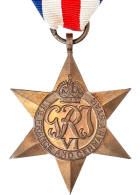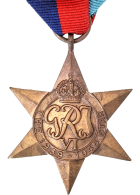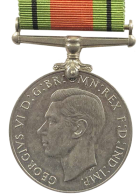My father, Joseph Percival Peppett, was born on 8th October 1918 and he enlisted the army on 15th September 1939. He got assigned to the 1st Battalion of the Middlesex Regiment to North West Europe.
Jopseph's assumed path in the army
1st Battalion Middlesex Regiment became the machine gun battalion in the 15th Scottish Infantry Division. In 1942 the 7th Battalion, Queen's Own Cameron Highlanders was part of the 46th (Highland) Infantry Brigade, in the 15th (Scottish) Infantry Division. On 24 March 1942 they were redesignated as the 5th (Scottish) Parachute Battalion. The four proceeding British parachute infantry battalions had been raised by volunteers from all ranks of the army. The 5th (Scottish) Parachute Battalion was formed by the conversion of the 7th Battalion, Queen's Own Cameron Highlanders together with volunteers from other Scottish regiments for parachute duties.
During training, all members of the battalion had to undergo a twelve day parachute training course, which was carried out at No. 1 Parachute Training School, RAF Ringway. Initial training consisted of parachute jumps from a converted barrage balloon before progressing to five parachute jumps from an aircraft.
The 15th Scottish Infantry Division had not seen action before joining the 2nd Army in Normandy in June 1944.
What happened after that is still a blur.
Help if you can...
My Dad’s Military service Record shows he enlisted 15 September 1939, he became posted with the 1st Battalion, Middlesex Regiment to NWE (North West Europe) on 15 June 1944 through to 13 September 1945.
When asking my Dad of his experiences in WW2 as a small child, my only recall is that he spoke of training to parachute and that he was sickened by the huge numbers of dead animals that were lying around. He died when I was still quite young, since when I believe that not wanting to upset a small child, the dead animals he spoke of was most likely a metaphor for dead people. Under the Reserve Liability Act, upon release he was obliged to remain in the army reserve until 30 Jan 1959.
The Middlesex Regiment was billeted in nearby Surrey docks at the outset of the war. If my memory serves me correctly, his outfit was manning some of the anti-aircraft guns and was responsible for the barrage balloons surrounding the docks. He met my mother during an air raid on Surrey Docks in September 1940 when my mum, then age 18 was an acting air raid warden. My mother was born in Havannah Street, Polar (Isle of Dogs) in 1922.
They married in 1942, and when my Mum fell pregnant with my sister in 1943, she was evacuated to Northern Ireland and remained there until the end of 1944. I came along in August 1945.
Medals Joseph was awarded: 1939 - 1945 Star, France & Germany Star, Defence Medal and the War Service Medal.
If anybody can recognize anything from the photograph and tell me more about it, or perhaps explain the likely reason why the MOD have effectively censored my Dad’s war record any information would be appreciated.
His son Robert Anthony Peppett









